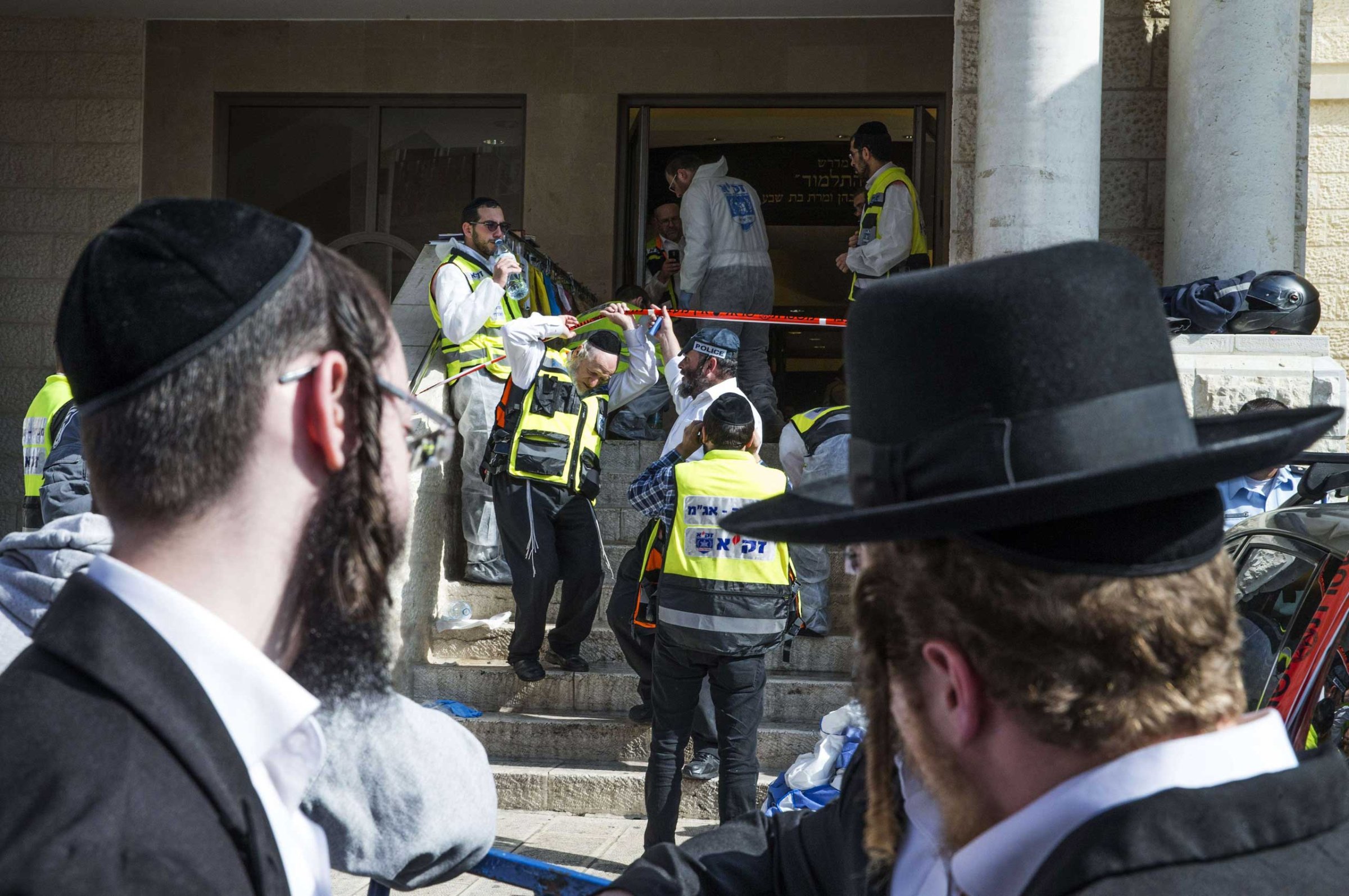
Two Palestinians from East Jerusalem burst into a West Jerusalem synagogue on Tuesday morning, killing five Israelis and wounding seven others with knives and axes in an attack that is being viewed by both sides as a potential turning point in the Israeli-Palestinian conflict.
That conflict, simmering since the end of a seven-week long war this summer between Israel and Islamist militants in Gaza, has reached boiling point in recent weeks. There have been a string of Palestinian stabbing attacks targeting Israelis so far this month, resulting in the deaths of four Israelis. Palestinians accuse Israel of ratcheting up tensions around Jerusalem’s Temple Mount, or Noble Sanctuary, an area sacred to both Jews and Muslims, and say the building of Israeli homes in the West Bank and East Jerusalem has provoked Palestinian ire.
But Tuesday’s attack in a crowded synagogue where worshippers has just begun their morning prayers is the most serious attack in recent weeks. Both Israelis and Palestinians noted the choice of target and the skyrocketing tensions over Jerusalem’s holy sites – the Temple Mount or Noble Sanctuary houses the Dome of the Rock and the Al-Aqsa Mosque, and has the Western Wall at its base. Many expressed concerns that this may be morphing into a religious war more than a struggle over land.
“We don’t want to see ourselves as Jews as being in a war with Islam – a religious war would be a disaster from every perspective,” said Israel’s President, Reuven Rivlin, in comments to reporters, broadcast live as the news was unfolding. “We have a long-standing dispute between Jews and Arabs, between Israelis and Palestinians, but we must not allow this to be twisted into a war between religions.”
Chaos and Mourning in Jerusalem After Synagogue Attack
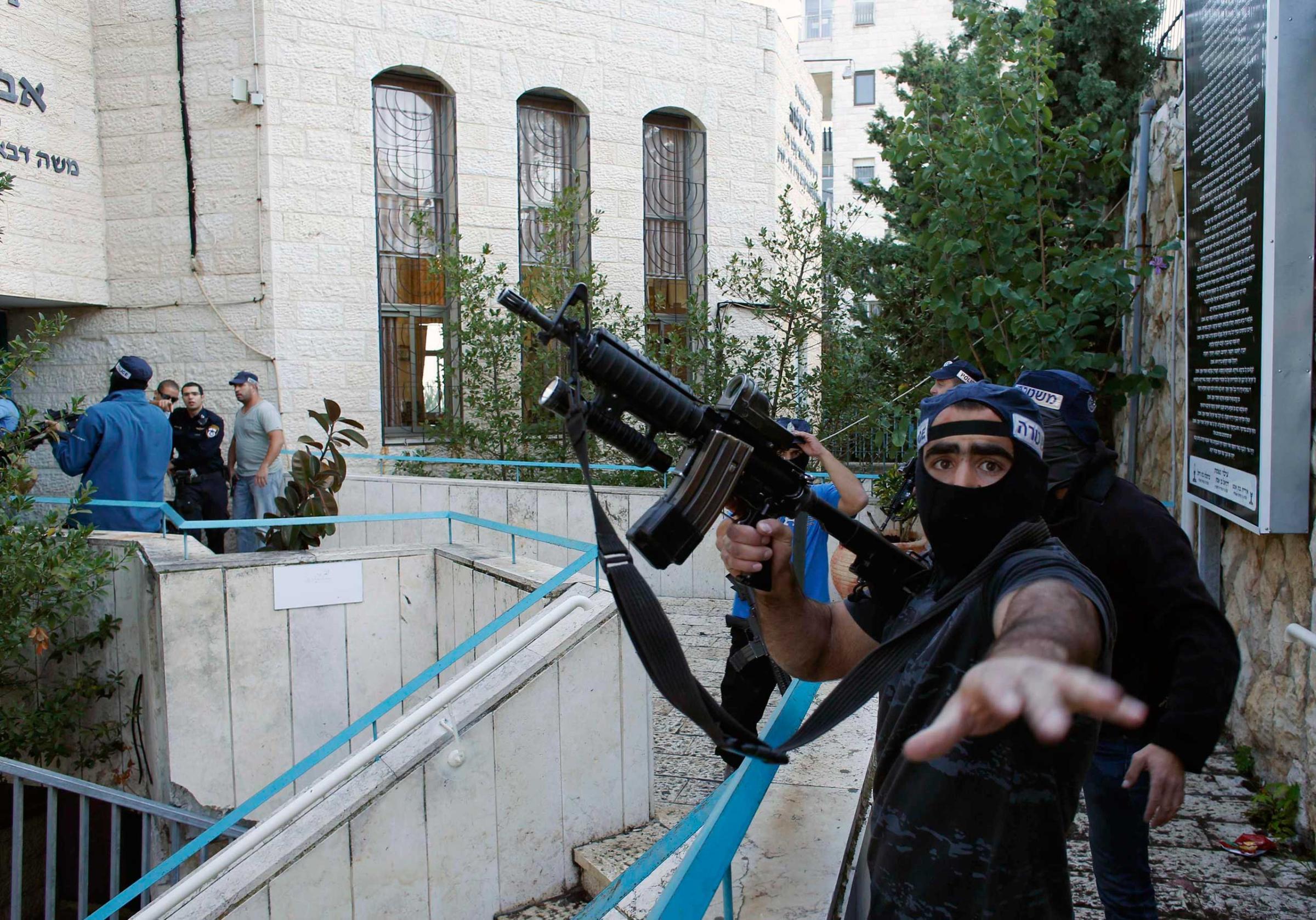
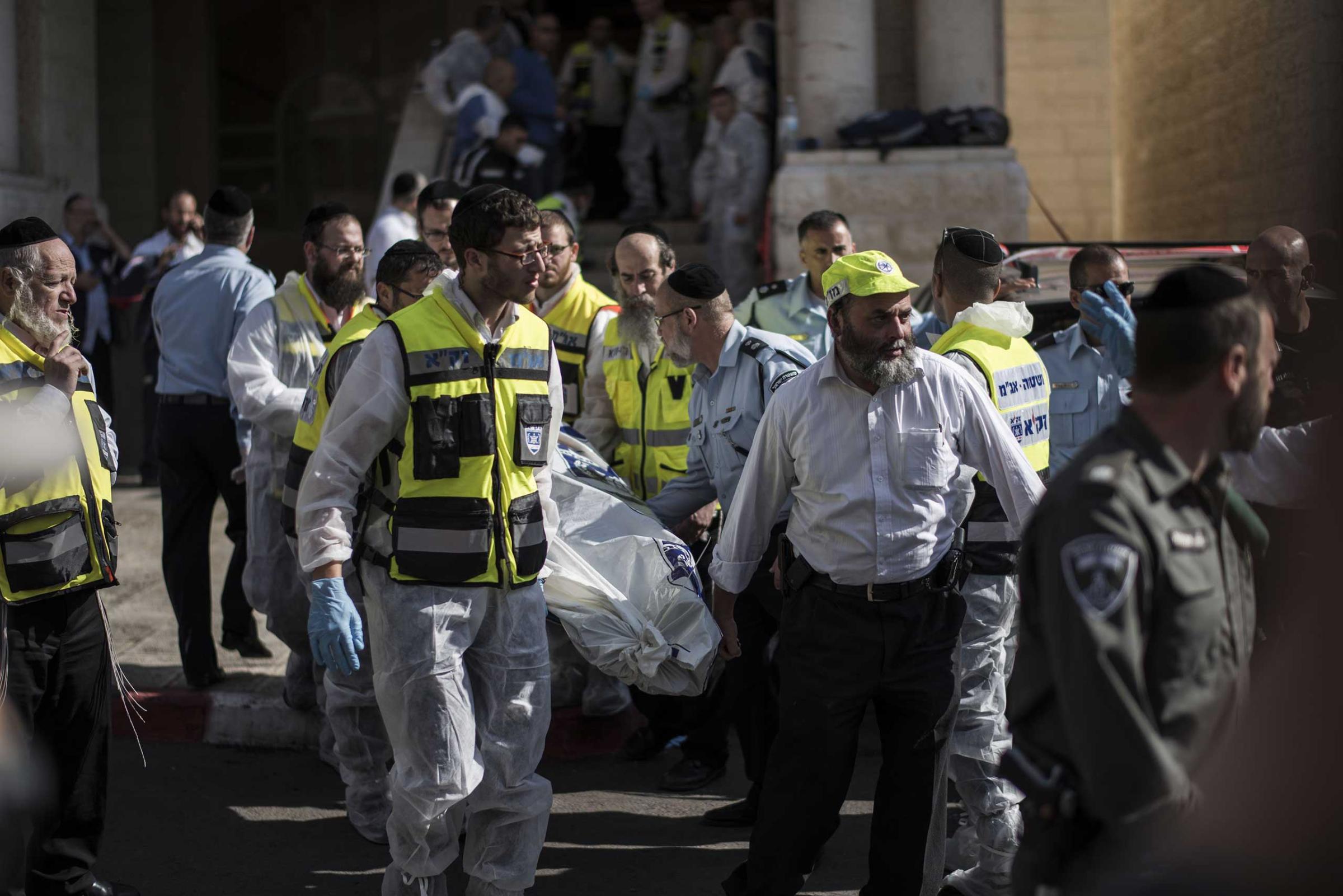
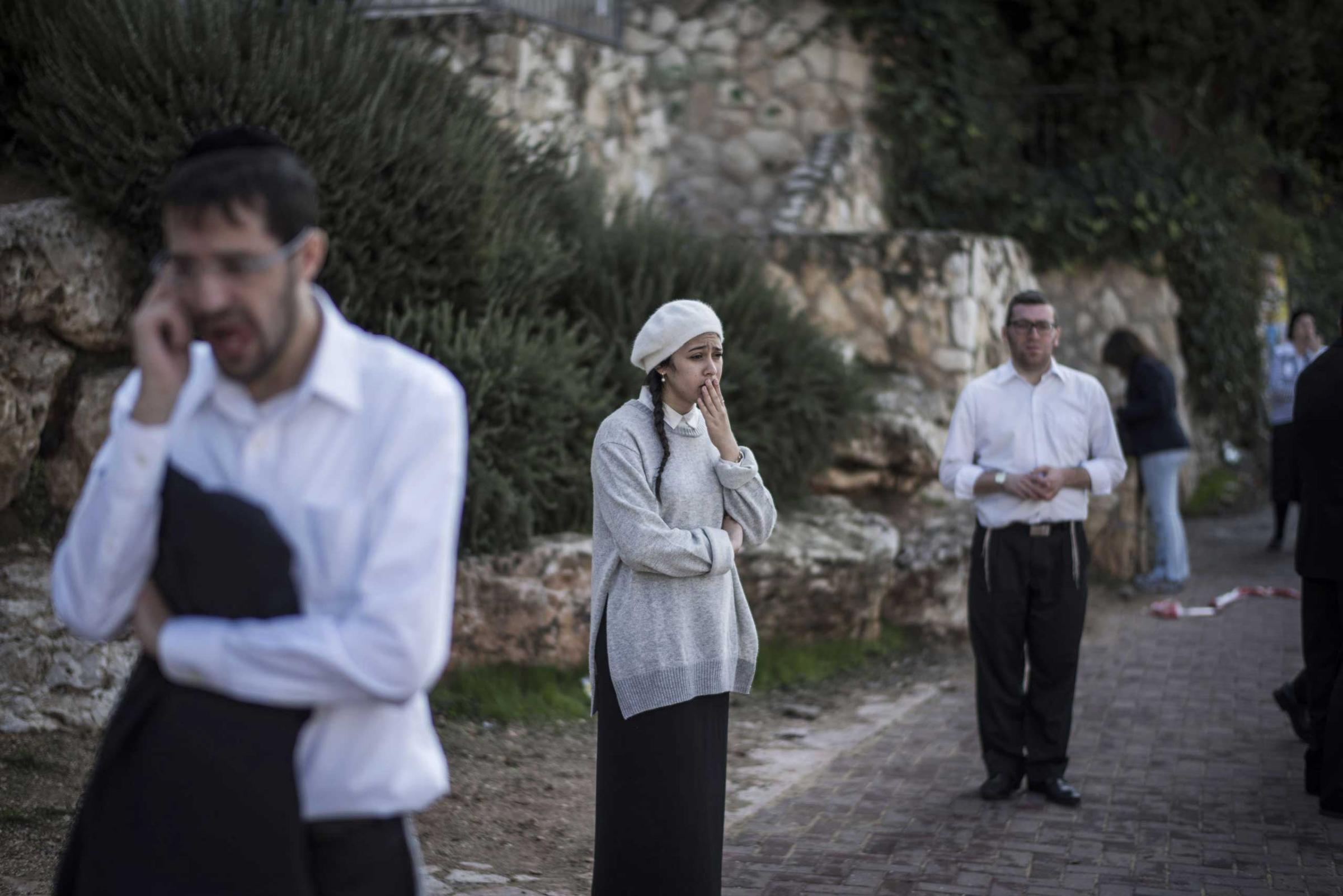
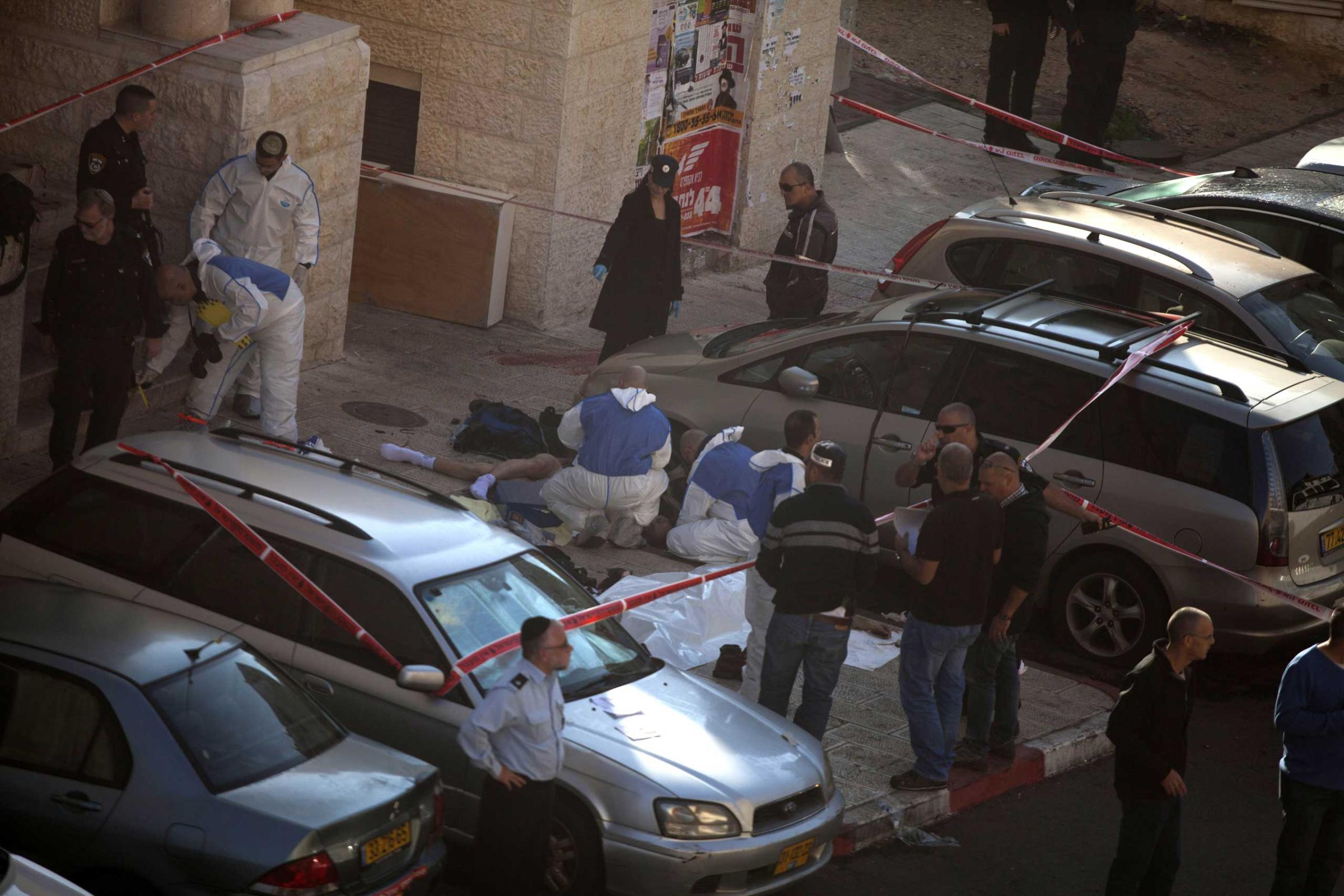
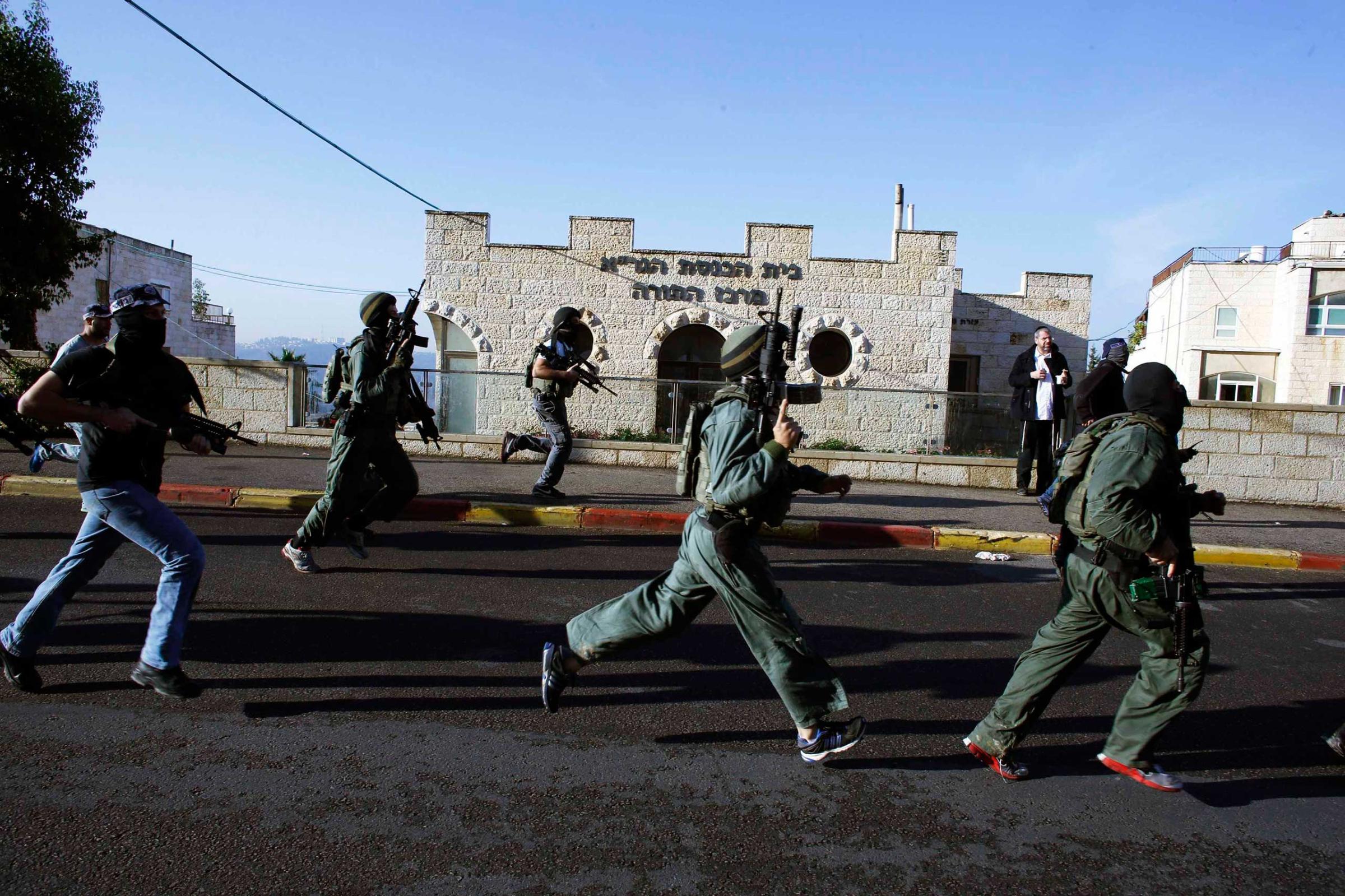
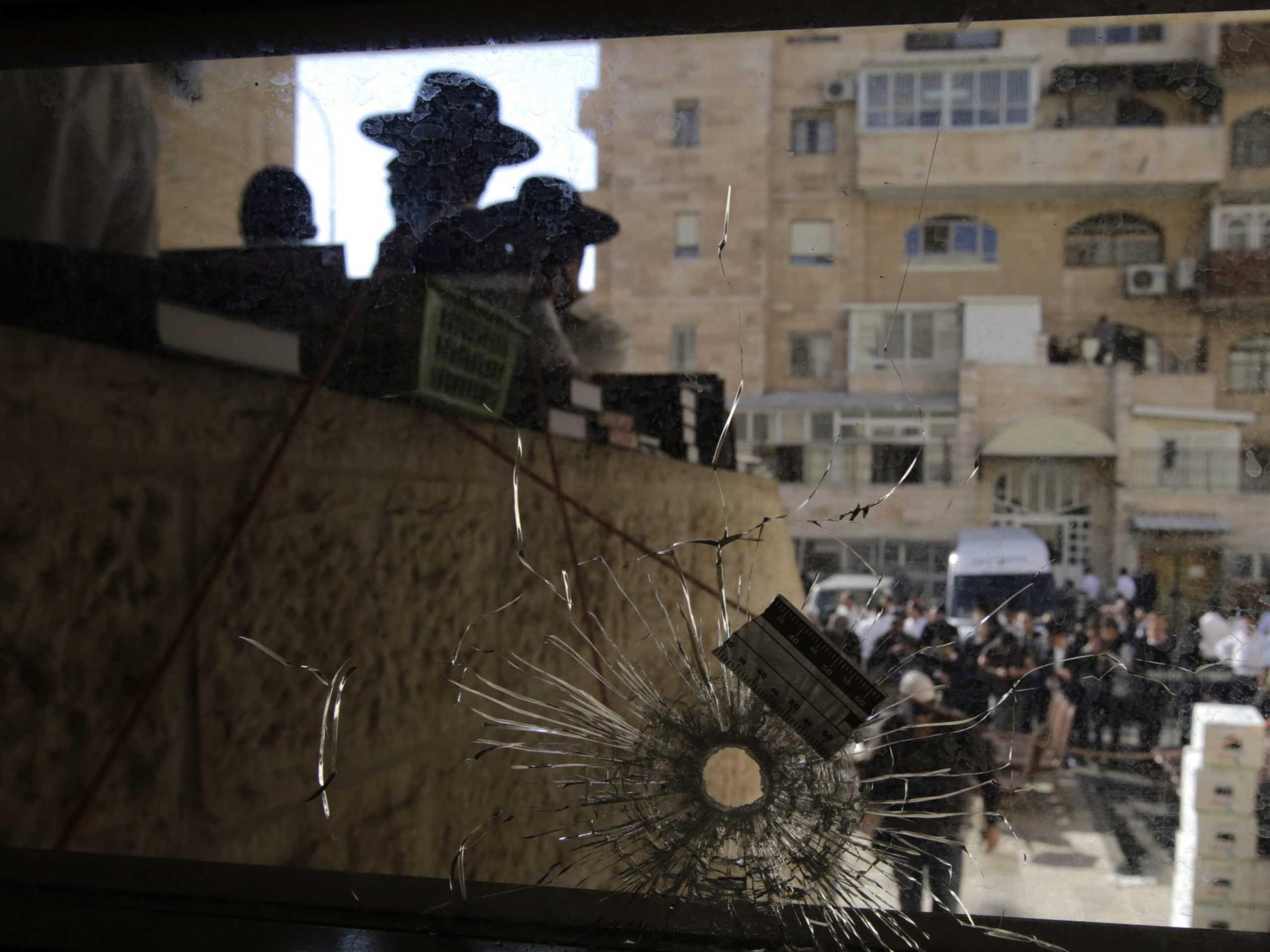
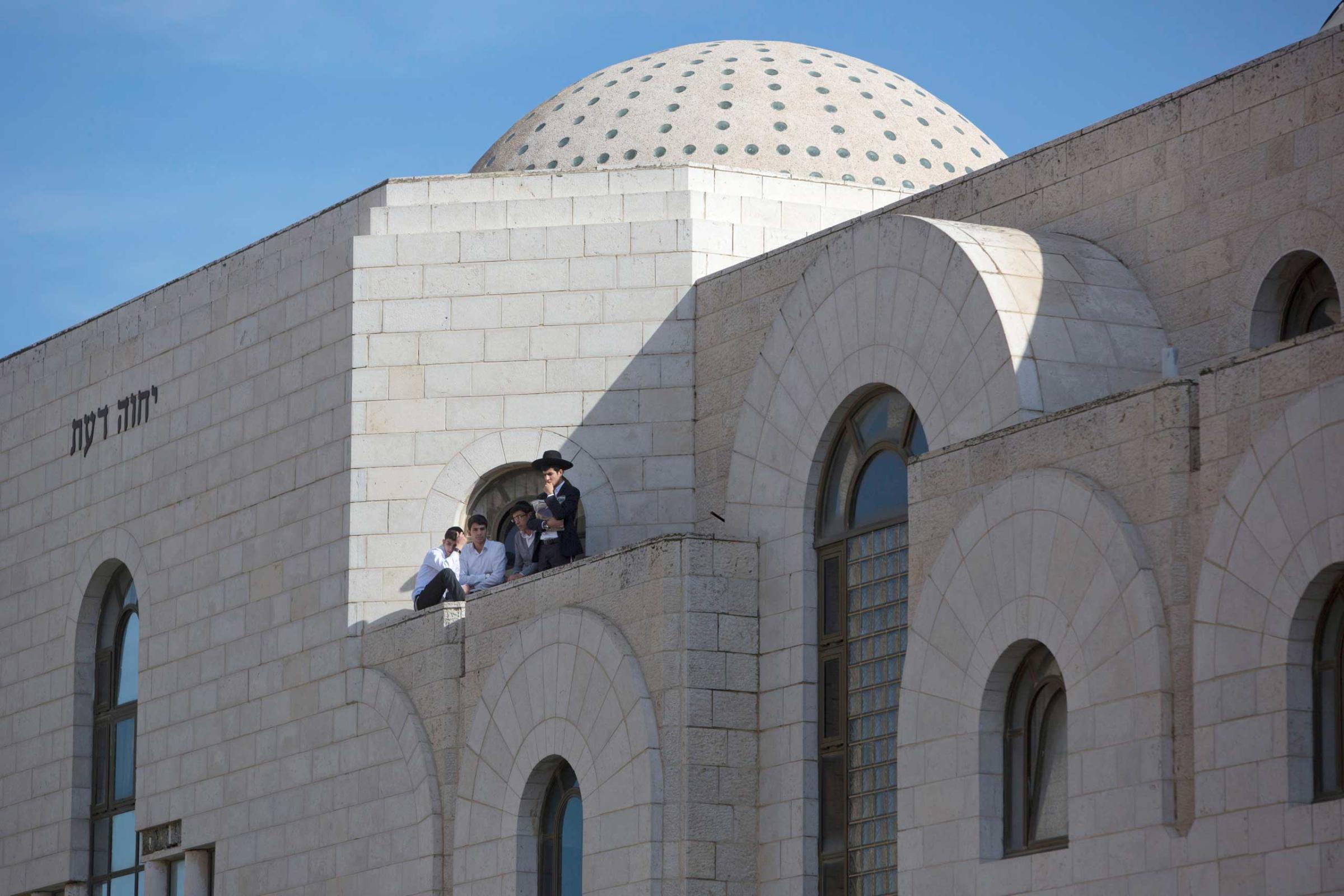
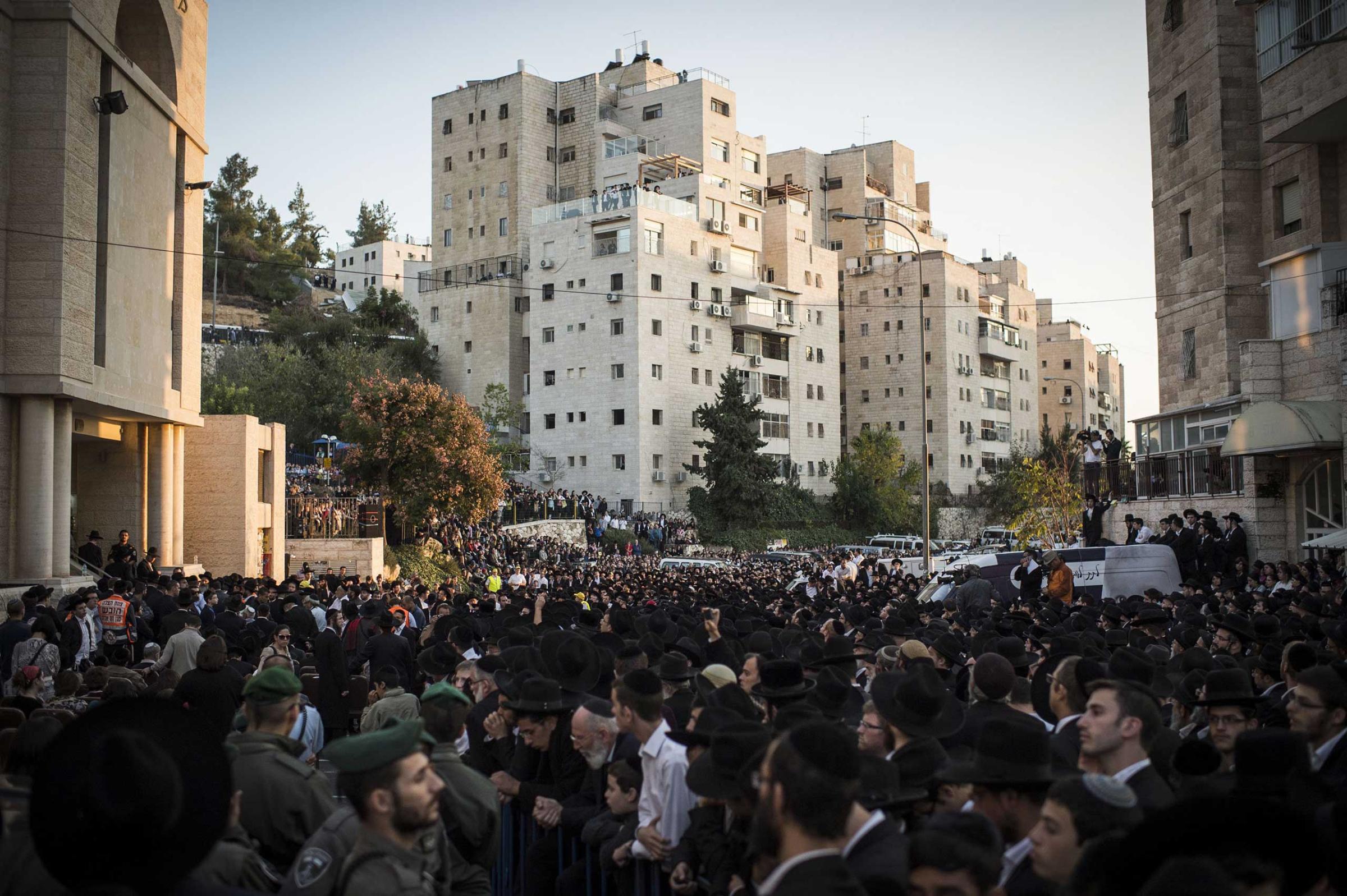
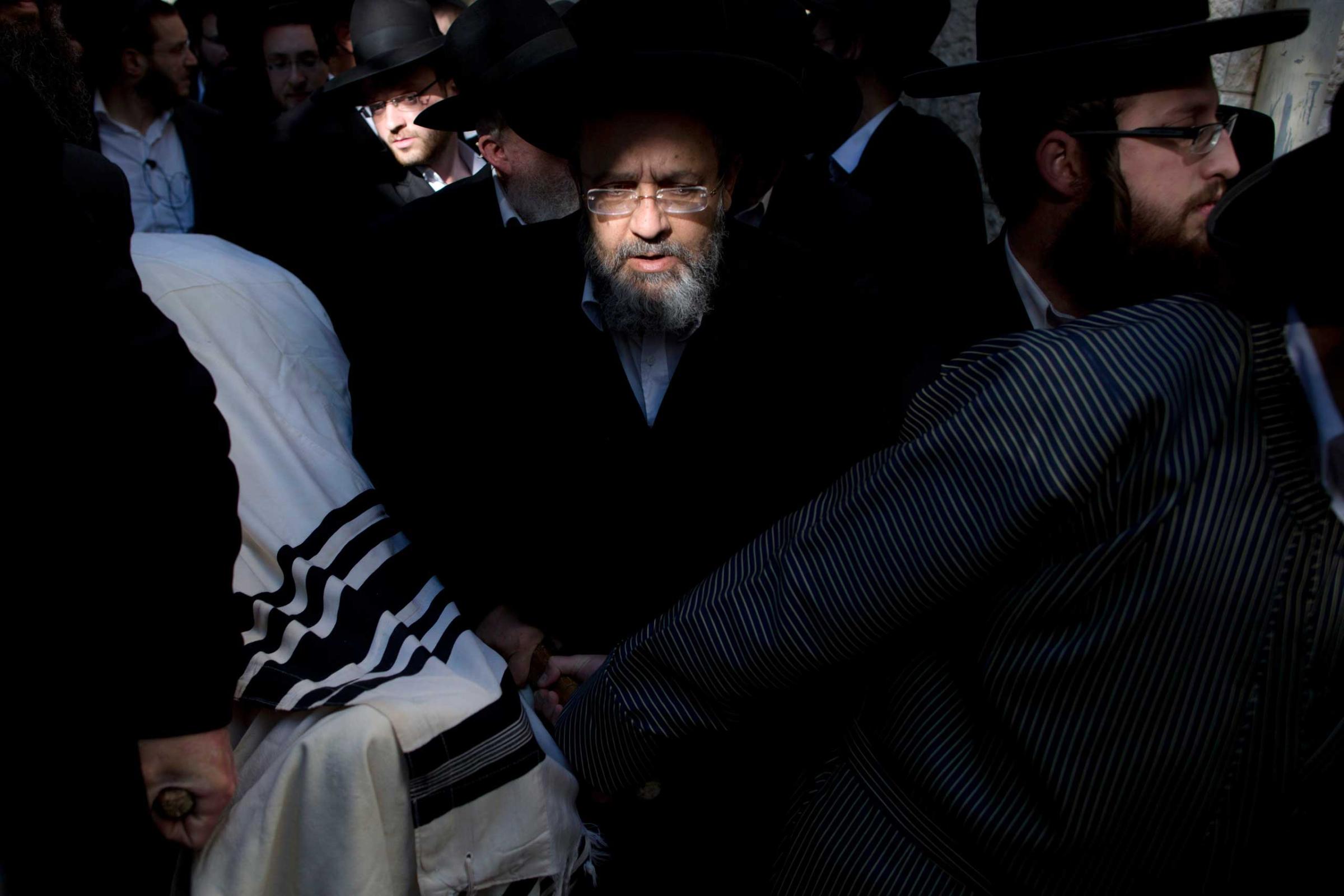
Palestinian Authority President Mahmoud Abbas condemned the attack but also demanded “an end to the ongoing incursions into the Al-Aqsa Mosque and the provocative acts by Israeli settlers as well as incitement by some Israeli ministers.” Rivlin applauded Abbas’ condemnation but said he was not doing enough, adding, “We’re hearing imams who are using every opportunity to incite against Israel.”
Israeli Prime Minister Benjamin Netanyahu had harsher criticism for the Palestinian leader, saying that the attack was a direct result of incitement by Hamas as well as by Abbas. Netanyahu’s ultra-nationalist Foreign Minister Avigdor Lieberman took it a step further and accused Abbas of deliberately trying to turn the conflict into a religious war between Muslims and Jews. Abbas recently characterized Jews as having desecrated the Temple Mount, which Lieberman said legitimizes attacks like the one on Tuesday.
Zakaria al-Qaq, a lecturer in national security at Al-Quds University which has campuses in Jerusalem and in the West Bank, said he was concerned that the atmosphere in the region – including the rise of the Islamic State in various enclaves in Iraq and Syria – was pushing the Israeli-Palestinian conflict to take on a more religious hue.
“I’m afraid that today’s events will be a sort of turning point in terms of dragging the conflict towards having a different label on it, and it will look more like a religious conflict,” says Al-Qaq. Even though reports surfaced Tuesday that the attack may have been carried out by the Palestinian Front for the Liberation of Palestine (PFLP), a secular nationalist group, al-Qaq said people were already drawing their conclusions about what this new stage of the conflict would look like. It would not necessarily be a third Intifada, or uprising, as some have predicted, but an unprecedented religious war.
“Regardless of whether the perpetrators are secular or religious, they have decided to use a place of prayer to inflame the religious identity of the conflict, moving it from Palestinian-Israeli to Muslim-Jewish,” Al-Qaq says. “If there will be any retaliation from any side, even just a radical group of Israelis who decide to attack a mosque that will inflame the situation very seriously. If you put it in the regional context, looking at Sunni vs. Shia tensions and the rise of ISIS, and just days ago in northern Israel, a riot pitting Muslims against Druze, we see that this is how the ball is rolling now – everything being dictated by religion.”
Receiving the first reports of the attack around 7 a.m., police rushed to the scene and shot dead the two Palestinians, who were from the East Jerusalem neighborhood of Jabel Mukaber. Chaim Weingarten, a volunteer for ZAKA, an Israeli organization that arranges for religious burial following terrorist attacks, said he felt it as if “ISIS has arrived in Jerusalem.” He explained what he saw in comments provided to the media by ZAKA: “This was an extremely difficult scene. The terrorists used live fire and a butcher’s knife. The terrorists cut off the arm of a worshiper wearing tefillin (phylacteries). Horrific images that leave me with very difficult emotions.”
Israeli police said that three of the dead were originally from the U.S. and one was from Britain. An Israeli police officer died from his injuries hours after the attack, bringing the death toll to five, a spokeswoman at Hadassah hospital told CNN. Among the victims of the attack is an Israeli-American rabbi, Moshe Twersky, 59. He was the head an English-speaking seminary, or yeshiva, and is the son of a renowned rabbi and Harvard professor, Rabbi Yitzhak (Isadore) Twersky of Boston, and well as the grandson of Rabbi Joseph B. Soloveitchik, one of the founders of Jewish Modern Orthodoxy.
Tuesday’s attack came after a Palestinian bus driver, Yusuf Hasan al-Ramuni, was found hanging in his bus on Sunday. Israeli forensic officials ruled it was a suicide and said there was no evidence of foul play, but Palestinians believe it was a murder staged to look like a suicide, and held protests on Monday in response.
Ghazi Hamad, a senior Hamas official in Gaza, said in a BBC interview that attacks like Tuesday’s should be anticipated.
“Everyone expected that this would happen,” Hamad said. “Every day Jerusalem is boiling, every day there is a new crime against a Palestinian citizen. We didn’t see any effort of the Israeli government to stop the settlers from attacking the al-Aqsa mosque. They should open their eyes and see there is a revolution in Jerusalem, there is an uprising.”
In the aftermath of the killings, Israeli media reported clashes between Palestinian and police near the East Jerusalem homes of the two alleged attackers.
More Must-Reads from TIME
- Donald Trump Is TIME's 2024 Person of the Year
- Why We Chose Trump as Person of the Year
- Is Intermittent Fasting Good or Bad for You?
- The 100 Must-Read Books of 2024
- The 20 Best Christmas TV Episodes
- Column: If Optimism Feels Ridiculous Now, Try Hope
- The Future of Climate Action Is Trade Policy
- Merle Bombardieri Is Helping People Make the Baby Decision
Contact us at letters@time.com